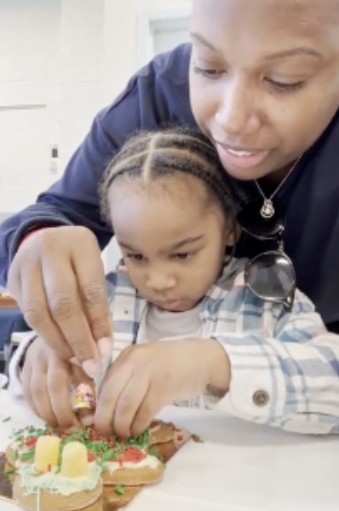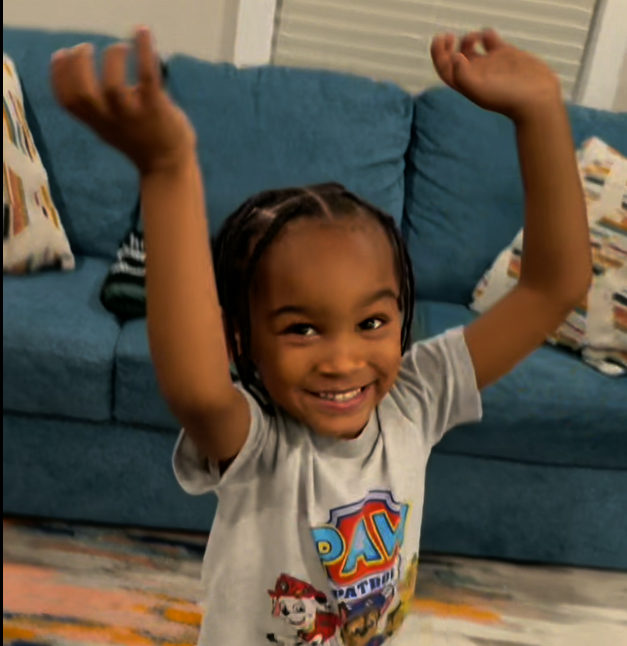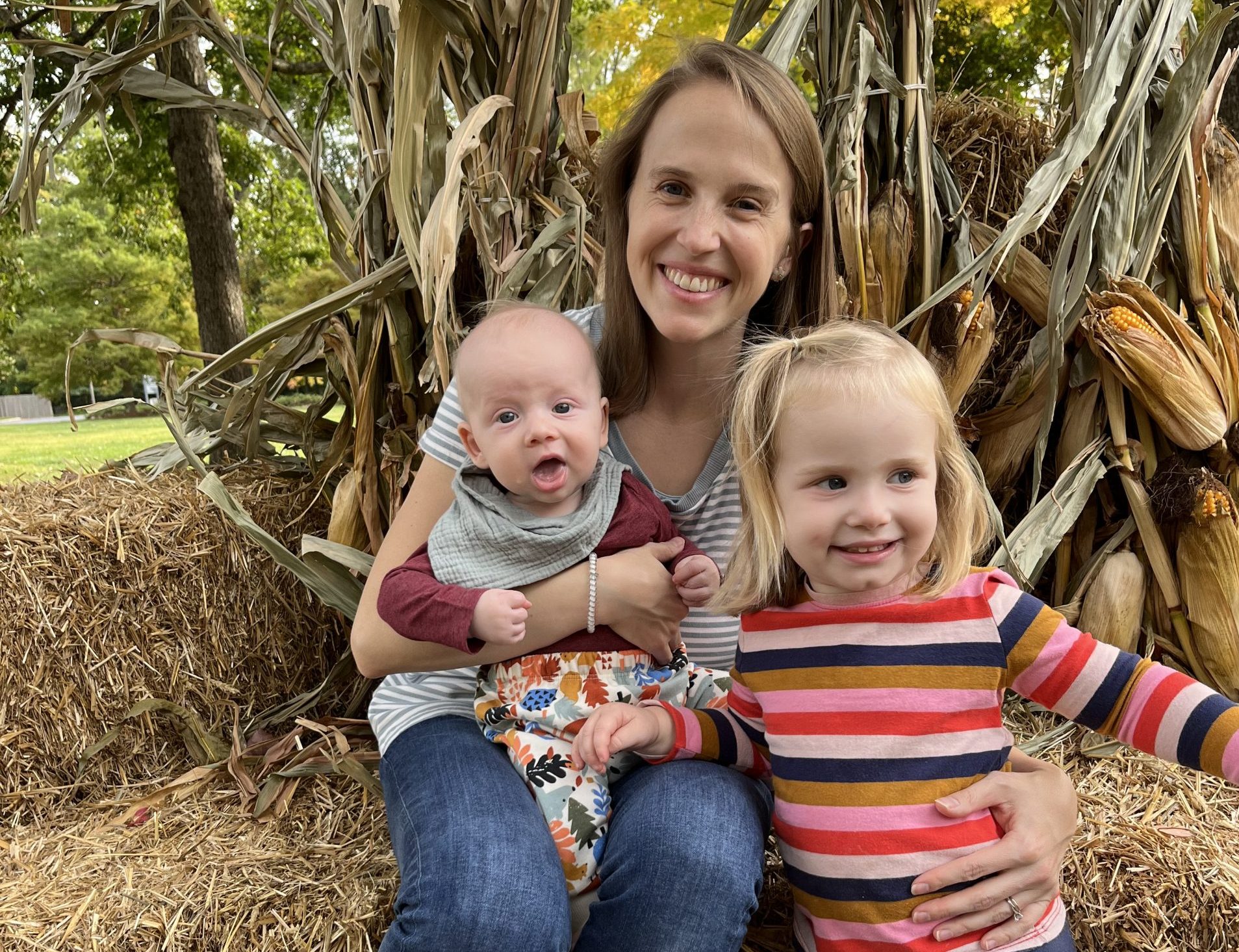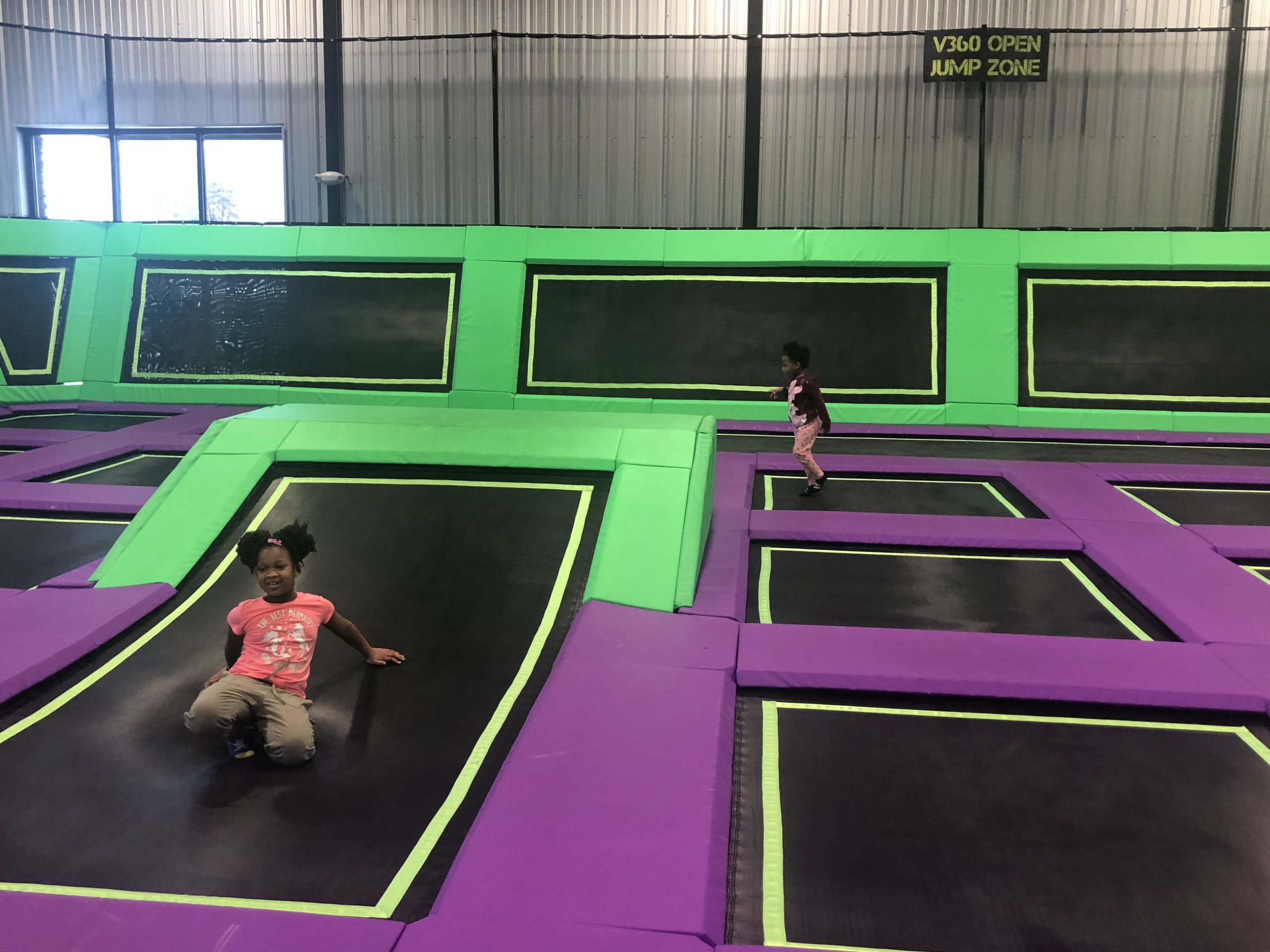Megan Fields-Olivieri is Assistant Professor of Clinical Psychology at The University of North Carolina at Greensboro and a mother of two young children. Dr. Fields-Olivieri has specialized training in early childhood mental health, and her research focuses on child emotion, and how it influences both language development and parent/child communications. Since 80% of a child’s brain development occurs from birth to age 3, the work of Dr. Fields-Olivieri intersects with The Basics Guilford in two important ways. First, the Basics emphasize the importance of language development through concepts like Talk, Sing, Point or Read and Discuss Stories for example. Secondly, these concepts also zero in on parent strategies to Maximize Love and Manage Stress.
Because emotion is the language of a baby, emotion and language are interconnected communication systems. As children’s brains are developing with language skills, their emotional capacities to self-regulate are also developing, yet our culture doesn’t often consider the impact of emotion on language development (or vice versa). For example, emotions may directly impact how well the important ‘serve and return’ language exchange between caregivers and infants/toddlers operates.
Dr. Fields-Olivieri described previous studies, conducted by other researchers, finding that toddlers that have more negative emotions or may be considered “difficult” tend to have worse language skills or develop their language skills more slowly. Curious about why this might be, Dr. Fields-Olivieri and her team have examined how toddlers’ emotions might influence- or be influenced by- parent-toddler verbal communication. They found that toddlers’ positive emotions seem to encourage parents to verbally communicate with their toddlers, whereas parents tend to be less responsive to negative emotions like crying or whining than they are to language attempts. However, parents’ verbal responses to negative emotions appear to help toddlers shift from communicating with negative emotion to communicating verbally.
At the heart of this early childhood research happening right here in our community is work that may help parents understand how to better respond to a child’s negative emotions and to deal with their own stress. Dr. Fields-Olivieri wants parents to remember several strategies:
- Remember that frequent, intense negative emotion expression is expected and developmentally appropriate in the toddler period. Think of it as a developmental milestone just like learning to walk or talk!
- The middle of a tantrum is not the time to teach your toddler about emotions or emotion regulation strategies– no one, especially toddlers, has the capacity to listen and learn well when they are very upset!
- What can you do in the moment, then?
- First, take a moment to calm yourself down. Take a few deep breaths or use another strategy that is helpful for you.
- Next, briefly acknowledge your child’s feeling or the situation that seems to have triggered that feeling (even if you think it’s silly!). Try something like “Wow, you’re feeling so sad about that” or “You really wanted the blue cup”.
- Remember it is possible to acknowledge or validate your child’s negative emotions AND hold firm boundaries. You can say something like “It’s okay to feel mad. It is not okay to hit.”
- Remember that it is not your job to “fix” your child’s negative emotions. Sometimes the best thing to do is to be a calm presence for your child, and ride out the emotional wave with them.
- Take advantage of calm moments (without a meltdown) to connect verbally with your child. This can include talking about emotions using books and stories, or talking about past or future events in their life that may cause negative emotions.
- Don’t be hard on yourself – remember that anytime you get your child to engage in a back and forth conversation, you will be building their language skills – don’t worry what you actually talk about!
- Remember that every child is unique and develops both emotional and language skills at different rates, so there is no “one size fits all” strategy. Be creative and flexible in communications with your child- and have fun!
Want to learn more about this research? Visit TALK Lab (talklabuncg.com)








